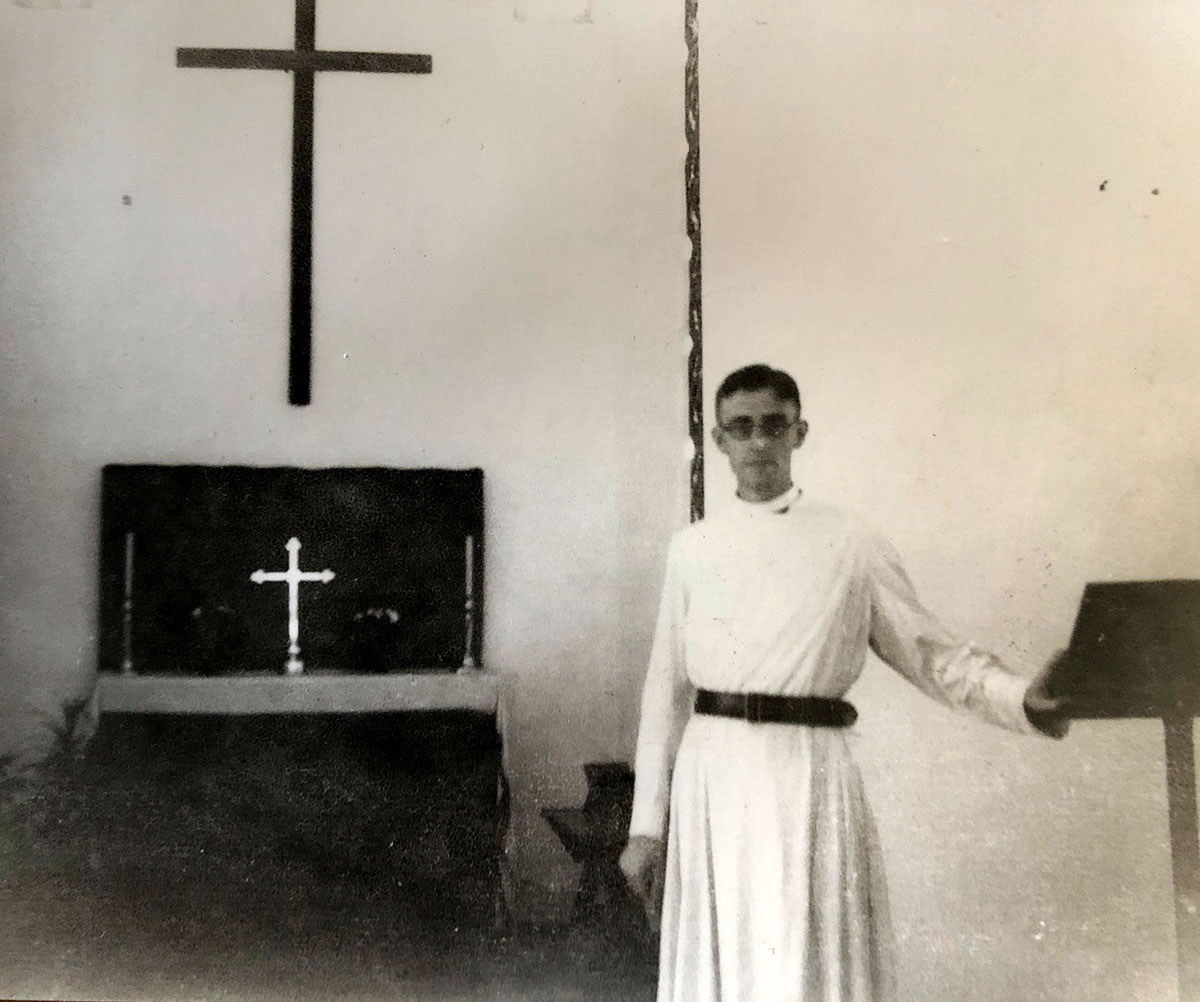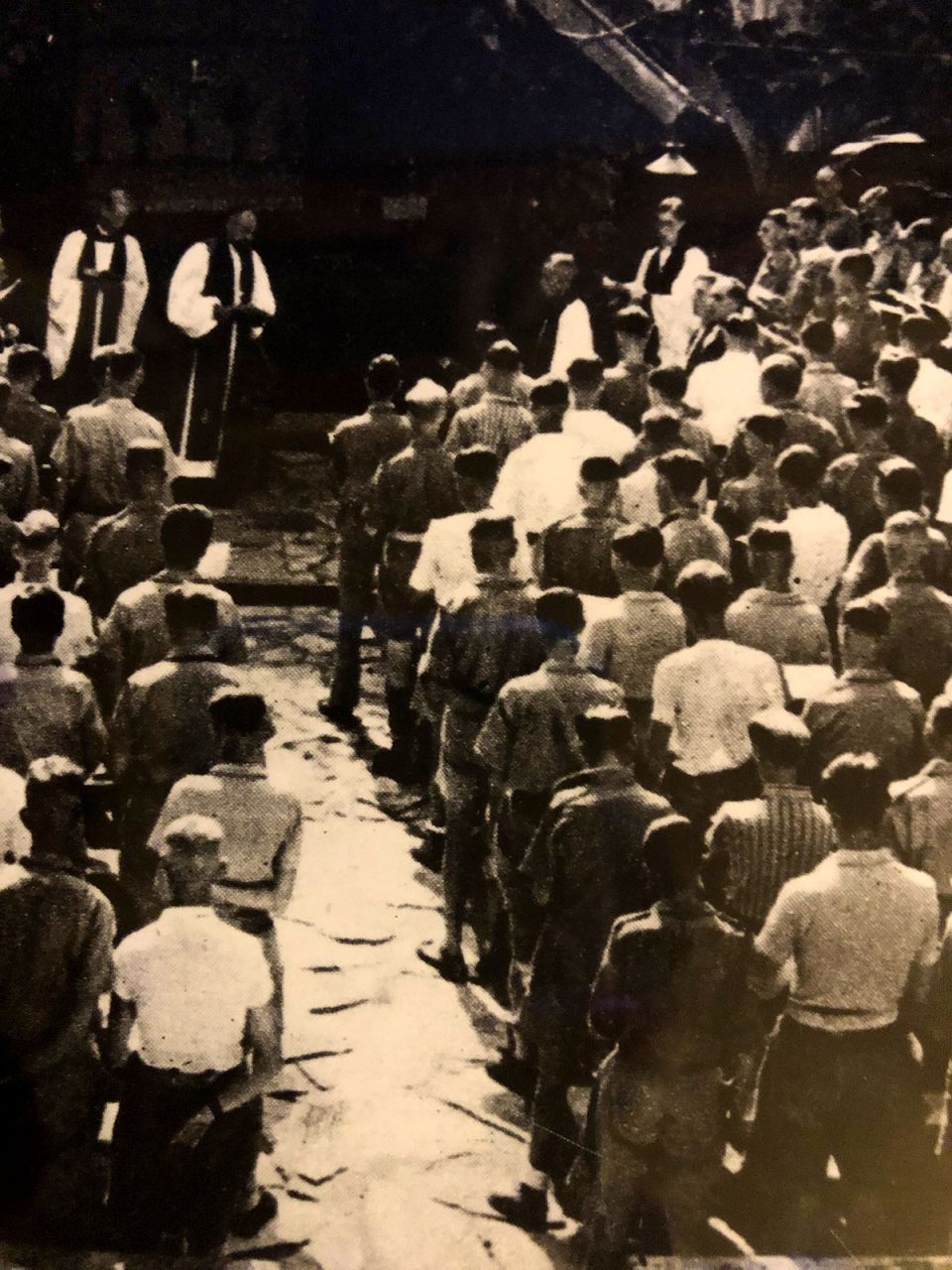My Father’s War
My father, Eric Cordingly was a Rector in the Cotswolds and married with 2 small boys (one of them was John) when war broke out and he was assigned as an army chaplain to a territorial battalion of the Royal Northumberland Fusiliers. In October 1941, following the Japanese attack on Pearl Harbour, his battalion was sent East, their destination Singapore. They arrived in time to join in the fierce fighting, just days before the fall and surrender of Singapore on 15th February 1942. He was just 28.


All the prisoners were based in an ex military camp in Changi on the north east of the island and in the first week he discovered an abandoned mosque and got permission to use it as a church, which he named St Georges. It became a hub of activity and was popular with the men who, as my father said, were homesick and felt that it reminded them of home.
While he was in Changi my father asked Sergeant Harry Stogden, a skilled engineer, to fashion a cross for his wartime chapel from the brass of a Howitzer shell case. Harry took a historic photo (below) of my father and the cross before he was sent up to Japan to work in the mines.
The men were gradually all sent off in working parties to become slave labour on Japanese projects all over the Far East, the most notorious of which was building the Death Railway. My father was sent off in April 43 in a hideous train journey packed into cattle trucks for 5 days and nights in sweltering heat. He was stationed in Kanchanaburi, Thailand, close to the River Kwai, in the ‘hospitals’ which took in the sick and dying men who were working on the Railway.
He continued his ministry in the most tragic way by sitting at the bedside of the young men who were dying of tropical diseases, brutal treatment and starvation. Then he gave them as dignified a burial as possible. “In the past several months I have buried over 600 men,” he wrote ,”It is too harrowing to picture vividly a ward of men whose sole kit consists of a tin and a spoon and a haversack and a piece of rag, lying on bare bamboo. Many is the time at the bedside of a dying man he has asked me to pray for his death, for release from his abject misery.”
When the Railway was complete my father volunteered to stay on with the sick men until they were sent back to Changi in April ’44, where he stayed for the rest of the War.
The Japanese finally surrendered on 2nd September 1945. One of the photographs below is of a Thanksgiving service on 7th September 1945. The men were all issued with new clothes from a Red Cross shipment and you can see my father standing under the lamp on the right. My father’s step sister worked at the War Office and told my mother to have a look at the Illustrated London News where this photo was published. My mother instantly recognised him and realised for the first time that her husband had survived his imprisonment. He arrived home on 13th October 1945. He had been away for four years.
The first photo is of Eric Cordingly with the brass cross on the altar of St George’s, Changi and the second photo is the Thanksgiving Service in Changi on September 7th 1945